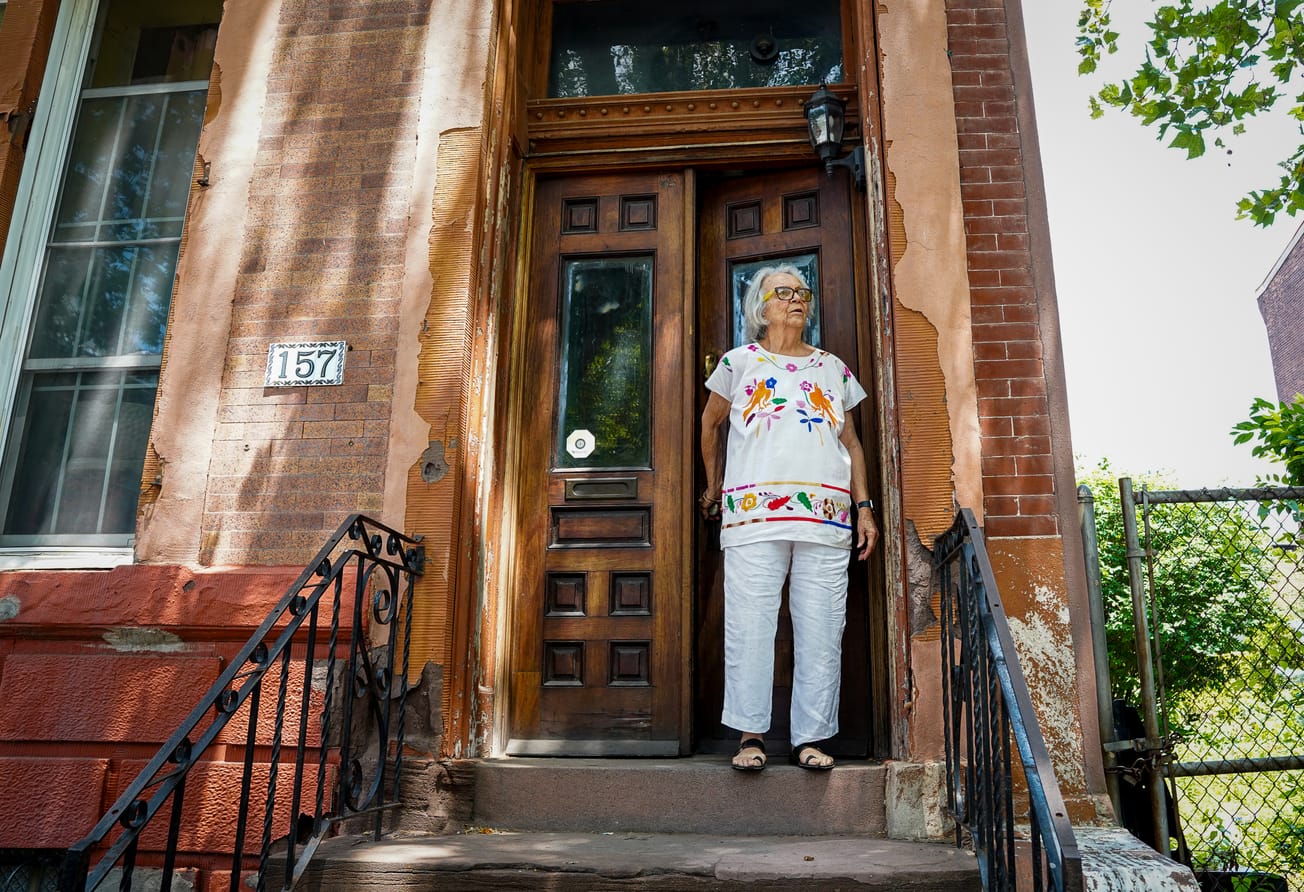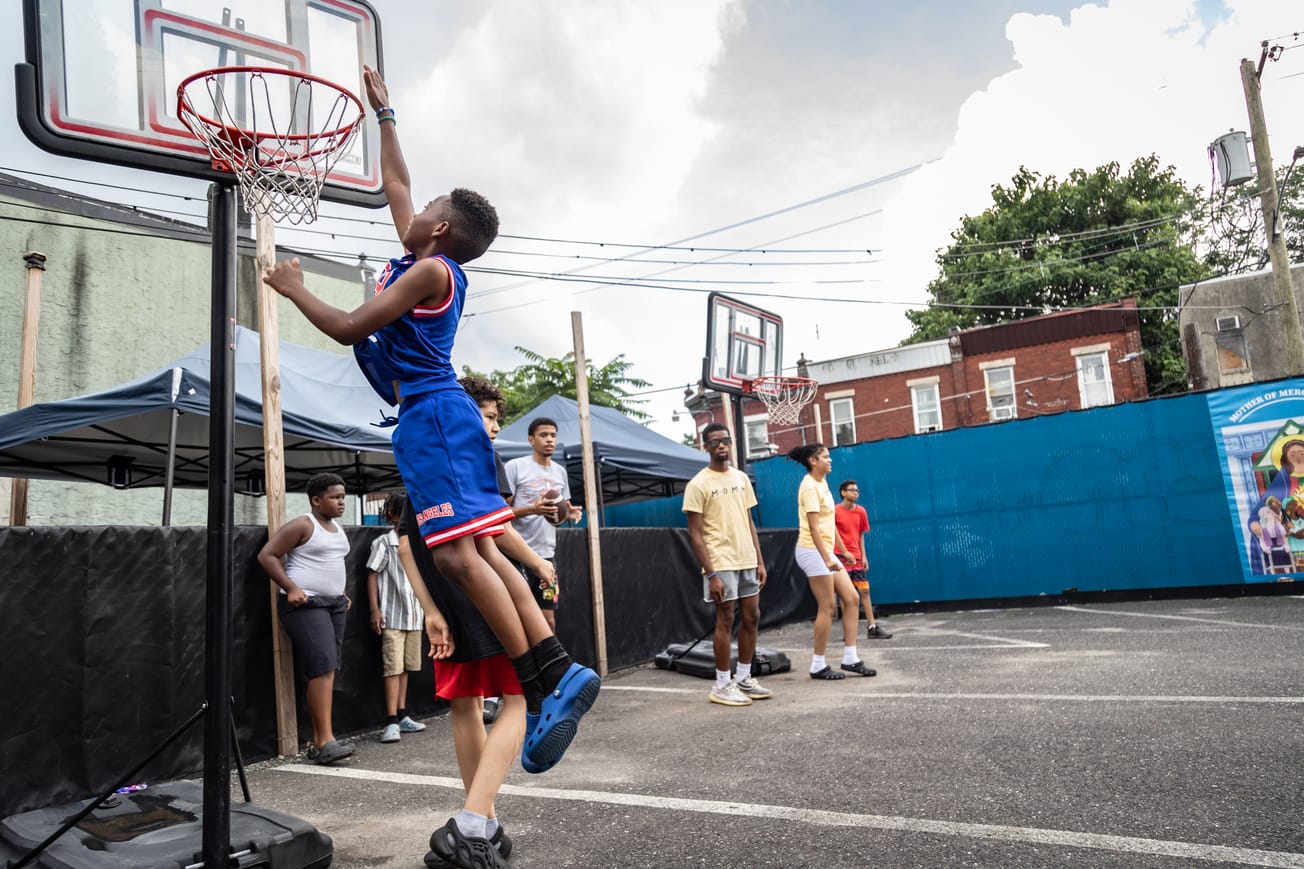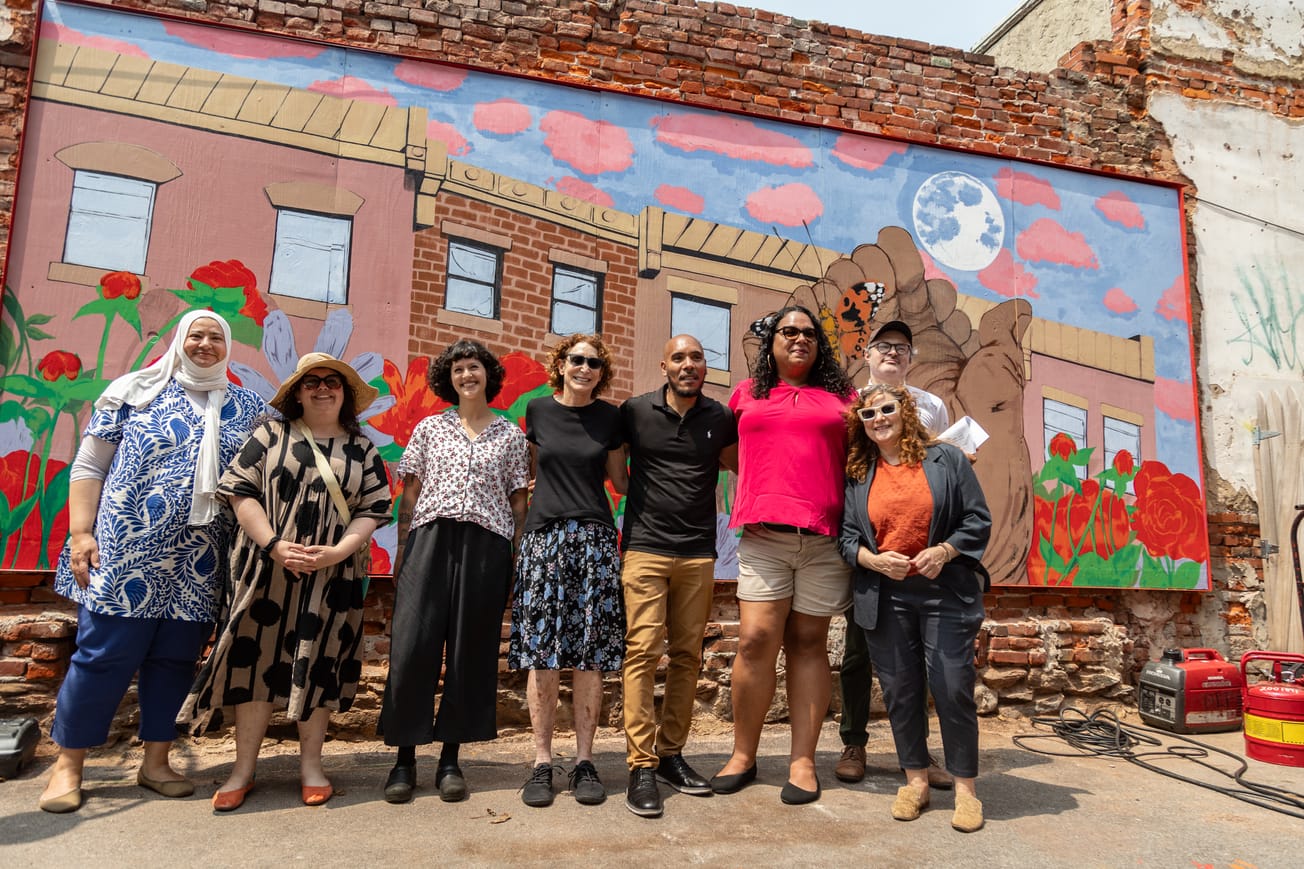Editor’s note: Names marked with an asterisk (*) are those of people who requested we use their first name only due to the sensitivity of the subject matter.
In early March, 20-year-old Gia* went to Covenant House in Germantown after her counselor at William L. Sayre High School identified that she needed help with housing. Gia, who has a 3-year-old daughter, had been supporting herself for two years.
“I was renting a room, but the lady downstairs got murdered,” Gia said. “I had to move out. I came to the Covenant House in Germantown, and then I came to [Rights of Passage in Kensington].”
Rights of Passage is a transitional housing program on Kensington Avenue that focuses on teaching life skills to young people in need of housing. It’s one of over 30 branches in North and South America of Covenant House, a housing provider for young people who have experienced homelessness or been victimized by human trafficking.
The program, which has a total of 20 beds, provides apartment-style housing for participants. Residents range in age from 18 to 21 and can stay for up to 18 months from the time they begin. However, if a resident starts the program at age 21, they can remain until they are finished.
“The age group we work with are very good at finding jobs,” said Hugh Organ, the interim executive director of Covenant House Pennsylvania. “However, keeping jobs is often a struggle.”
Residents are required to secure a job and pay a monthly rent 30 percent of their monthly income and turn in pay stubs to verify the amount. They are also required to put a minimum of $100 in a savings deposit, which goes up to an additional $50 every three months that they are in the program.
This year, Rights of Passage is celebrating its 20th anniversary. Since its opening, the program has provided transitional housing to over 330 youth.
“We want kids to live on their own even though they’re still in our care,” Organ said. “The goal is to practice living in an apartment … that’s why it’s a smaller number [of beds].”
Initially, Gia was wary of the model that Rights of Passage follows.
“I’m not good with change, so I had to get used to it,” Gia said. “When I went to the Covenant House, I cried for the first two weeks. When I came to [Rights of Passage], I cried for the first three weeks — almost a month.”
According to Organ, all staff is trained to be sensitive to residents’ trauma.
“We work with trafficking victims all the time,” Organ said. “We actually are the lead agency for the Philadelphia anti-trafficking prohibition. Our whole practice is very much a trauma-informed practice.”
Gia had to remind herself that the program was not meant to cause harm to her and that it was something she had to get used to.
“I was a bit hesitant with the neighborhood,” Gia said. “But I don’t know — I like it here now.”
For Gia, there were a few things that brought her out of her comfort zone, like therapy sessions and social outings, such as going to sporting events, which is something that helped her become more social in the program.
“I talk with my primary therapist that’s here, and the staff here,” Gia said. “It’s a good support system. What actually broke me out of it was going to Phillies games. I don’t usually like crowds, but they broke me out of it.”
Other residents have had positive experiences, too. In high school, 19-year-old John* was living in a house with four of his cousins when he was pushed out by his aunt. He then moved to his grandmother’s house, but after graduating from Overbrook High School in Philadelphia, he was asked to leave because it was overcrowded.
First, John went to Covenant House and got a job at Harrah’s Casino. Then in April, he moved to Rights of Passage. Right away, he was feeling good about the opportunity and grateful for the chance to learn life skills.
“Even when it comes down to rent, it teaches me how to be responsible for stuff like that,” John said. “Hopefully, by the time I leave, I’ll be able to cook,” John added, laughing.
When John leaves the program, he hopes to take the life skills he’s learned to live more independently. He would like to get promoted in the casino industry and is thinking about going to college to study gaming design.
Gia has benefited from the life skills support, too. She now saves half of every paycheck, which she said is a result of the program helping her with spending habits and prioritizing where her money goes. She plans on eventually returning to Community College of Philadelphia to study to become a registered nurse and taking care of her daughter, who is currently living with her mother.
Once participants leave Rights of Passage, Organ said it’s up to them to follow up and how much continued contact they’d like to have with the program.
“[To] any kid in ROP — if you stay there, you’re always welcome back,” Organ said.
What did you think about this story? Send a note to editors@kensingtonvoice.com, and we’ll consider publishing it in our Voices section. You can also tell us what you think in person at our neighborhood events.
Editor: Jillian Bauer-Reese / Story Designer: Jillian Bauer-Reese / Translator: Kristine Aponte





